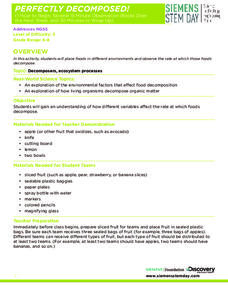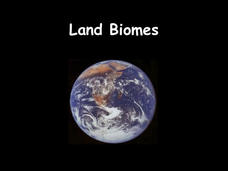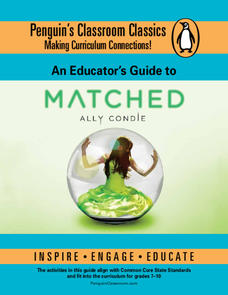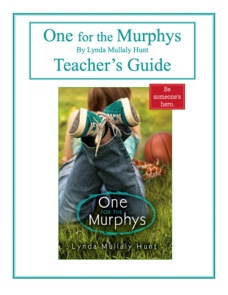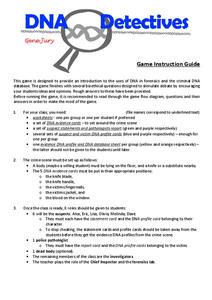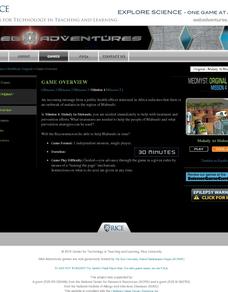EngageNY
Mid-Unit Assessment: Analyzing Author’s Purpose in Speech and Text
Part one of a mid-unit assessment relating to The Omnivore’s Dilemma includes listening to and analyzing a speech by Birke Baehr. Part two involves analyzing an excerpt from the text. The assessment ends with short response questions.
Echoes & Reflections
Contemporary Antisemitism
Despite the recognized atrocities of the Holocaust, anti-semitism continues. The 11th and final installment of the Teaching the Holocaust series explores the long-term effects of the Holocaust on modern anti-semitism, asking pupils to...
Echoes & Reflections
Perpetrators, Collaborators, and Bystanders
After the Holocaust, the world grappled with how to bring justice to the Nazis. But what to do with the thousands—if not millions—who allowed it to happen? Young historians consider the issues of guilt, collaboration, and responsibility...
Echoes & Reflections
Antisemitism
Propaganda and anti-semitism were linked to evil ends during the Holocaust. Using video testimony of Holocaust survivors, examples of Nazi propaganda, and discussion questions, learners explore the roots of anti-semitism in Europe and...
Tumblehome
Resisting Scientific Misinformation
How do scholars determine if a scientific claim is true? Learners investigate scientific misinformation by watching video clips and reading false advertising claims. They engage in discussion in both class and small group settings to...
PBS
“He Named Me Malala”: Understanding Student Activism Through Film
Malala Yousafzai has become the face of social activism. After watching He Named Me Malala and short student-made films about what young people can do to become instruments of change, class members reflect on what it means to be an...
Discovery Education
Perfectly Decomposed!
We all know someone who won't eat the banana with a brown spot, the grape with a dimple, and the apple with a bruise. Scholars use different fruits to explore what happens when fruits really start to decompose. They set up an experiment...
Newspaper Association of America
Celebrating Women’s History Month
Examine the lives of four women—Blanche Stuart Scott, Madeleine L'Engle, Margaret Evans Price, and Sybil Ludington—in a 23-page activity packet. Each profile comes with a set of vocabulary and reading comprehension questions. Further...
Penguin Books
An Educator’s Guide to Ruta Sepetys
Historical fiction novels give readers a chance to step into someone else's shoes. An educator's guide from Penguin Common Core Lesson Plans provides resources to accompany three historical fiction novels written by Ruta Sepetys: Between...
Biology Junction
Land Biomes
Biomes share similar climates and ecosystems, despite being separated geographically on the planet. A presentation introduces the six most common land biomes. It focuses on the commonalities in climate, plants, and animals with many...
Biology Junction
Energy Flow in an Ecosystem
Every living thing requires a food source, thus the interconnections in ecosystems become complex. Scholars learn about these interconnections in a presentation on energy flow. It starts with the sun and moves through many different...
Serendip
Food Webs, Energy Flow, Carbon Cycle, and Trophic Pyramids
The reintroduction of a species to an area doesn't always go as expected. Scholars learn about the reintroduction of wolves into Yellowstone National Park with a video, reading, and discussion questions. They complete a hands-on activity...
Serendip
Evolution of Fur Color in Mice – Mutation, Environment and Natural Selection
Most species of animals include a variety of fur or hair color, but why? Scholars watch a video about a changing environment for mice. As the rocks around them change hues, different colors of mice begin to thrive. Discussion questions...
Serendip
How Do We Sense the Flavors of Food?
We taste with our taste buds, so why do flavors change when we have a stuffy nose? Scholars experiment with taste testing while holding their noses and then while smelling. They record their observations in pairs and come together to...
NOAA
Understanding El Niño Using Data in the Classroom
Are weather troubles caused by El Nino? An installment of a larger series presents a five-part lesson on El Nino. First, scholars learn to read sea surface temperature maps. Then, they compare them to data on graphs before determining if...
Harvard University
Cosmic Questions
Scholars learn the stories of the universe with a unit study on the cosmos. They model the universe, learn about the relationship with the electromagnetic spectrum, understand the big bang theory, and debate the existence of life on...
Penguin Books
An Educators' Guide to Between Shades of Gray by Ruta Sepetys
Books can help teens understand complex global issues. A helpful educator's guide introduces readers to what it's like to be a refugee. Lesson components for the novel Shades of Gray include an anticipation guide and writing and research...
Penguin Books
An Educator's Guide to Matched by Ally Condie
Even supposed Utopian societies have their flaws. Using an educator's guide, individuals explore the society Ally Condie creates in Matched. Reflective writing prompts double as discussion questions and cover key themes in the novel, as...
Penguin Books
One for the Murphys by Lynda Mullaly Hunt - Teacher's Guide
Children in foster care face a lot of uncertainty in their lives. A guide for the novel One for the Murphys introduces a main character, Carley, who is thrust into the foster care system. Chapter-by-chapter questions cover key details in...
Biology Junction
Energy Flow Through an Ecosystem: Food Chains, Food Webs, and Energy Pyramids
When a minnow eats a piece of plastic, that garbage often tracks through multiple animals, causing harm to each as it passes through the food chain. Scholars learn about food chains, food webs, and energy pyramids with a presentation. It...
Biology Junction
Scientific Method - Controls and Variables
Most teens like to sleep in as late as possible, so testing the fastest way to get to school sounds like a great idea. A presentation walks through how to identify the controls, independent variables, and dependent variables in setting...
Gene Jury
DNA Detectives
Police find a man murdered in a local hotel, DNA everywhere, and now they need scholars' help. Budding detectives step into a crime scene playing the roles of victim, suspects, and investigators. They apply knowledge of criminology and...
Center for Technology in Teaching and Learning
MedMyst Mission 4: Malady In Mabuufo
An outbreak of malaria requires your help to stop its spread. To discover the pathogen that causes malaria and multiple ways to fight the illness scholars play games, answer short quizzes, and learn scientific concepts with the fourth...
Newseum
Can I Trust the Creators?
It's easy to find information at the click of a mouse, but is it trustworthy? Pupils learn about the E.S.C.A.P.E. acronym for evaluating sources. Next, learners read a news story and evaluate its sources to determine credibility. Last,...








